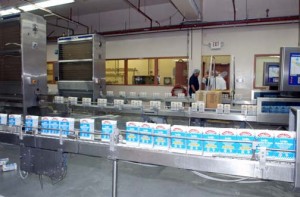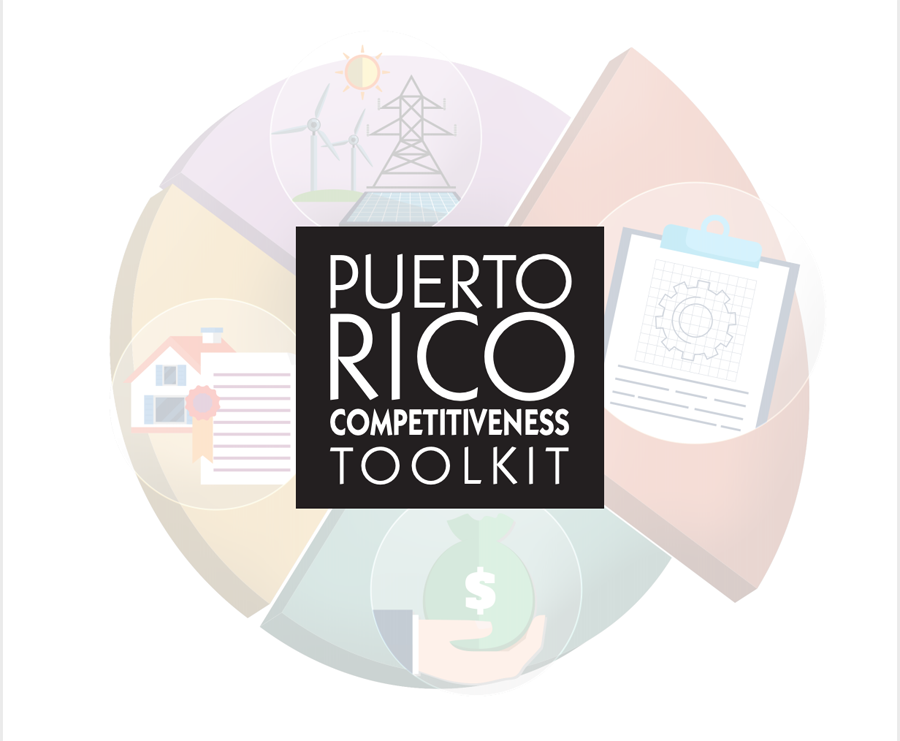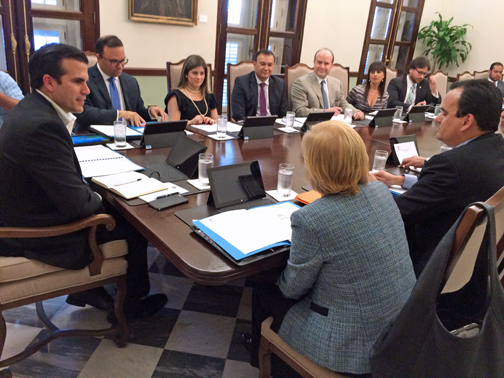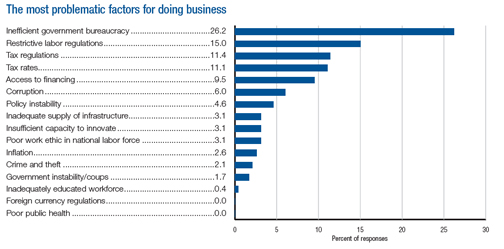PRMA: 3 measures ‘seriously hurt’ P.R. competitiveness in ’11

As 2011 wraps up, the Puerto Rico Manufacturers Association — one of the island’s most important trade organizations — took stock Tuesday of the last 12 months, concluding that a trio of major administration-backed measures significantly set back competitiveness by hindering free trade and industrial growth.
In an exclusive interview with News is my Business, PRMA Executive Vice President William Riefkohl and Deputy Executive Vice President Roberto Monserrate agreed that Law 154 effected in January, the “Enhanced Security Fee” enacted by the Ports Authority in April, and the recently approved Law 221 that imposes new conditions on UHT milk imports have “been negative for the manufacturing sector and for Puerto Rico.”
Law 154, which imposes a temporary an excise tax on sales by local subsidiaries to their offshore parent companies, has essentially acted as “the government’s largest source of income,” Riefkohl said, looking back at the results of the 4 percent tax that will be phased out completely in 2016.
“From the government’s point of view, it is totally dependent on the law. Without that revenue, the government would be bankrupt,” he said. “That aside, you can look as much as you want, but you will fail to find any major, important company not operating in Puerto Rico that came here even to explore the possibility of establishing itself after the tax was imposed.”
Since going into effect, Law 154 has generated between $150 million and $200 million a month in excise tax collections.
While he conceded that there have been several plant expansions in the past 12 months, the former head of the Puerto Rico Industrial Development Company under the Gov. Sila Calderón administration, said that has only happened “because those companies are headed by local management who will defend the operations tooth and nail.”
However, Riefkohl said companies doing business in Puerto Rico are still “upset” over the breach of trust that took place when the law was approved over a weekend in October 2010.
Port fee hinders activity
Meanwhile, Monserrate noted that the Port Authority fee — which was been fixed at $60 per ton of cargo — has successfully shored up $25 million for the agency, but has fallen short in detecting contraband or illegal goods that were allegedly being introduced to the island through maritime routes.
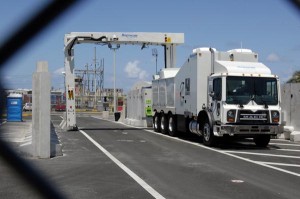
Incoming cargo containers must go through a scanner once they arrive at the Port of San Juan. (Credit: © Mauricio Pascual)
“This was basically a veiled tax. Six months after the pilot project was launched, we’ve seen that drugs and firearms are not coming in through the ports. If they were, it would have made front page headlines by now,” Monserrate said. “It was a subterfuge to slap a $25 million charge on cargo entering the island in exchange for nothing.”
In doing so, the agency has made doing business on the island “less competitive,” he said. Furthermore, he said the fee has driven a number of states to place restrictions on the items shipped to Puerto Rico, affecting the supply chain.
New UHT milk import restrictions
Rounding out the trio of measures that PRMA officials believe hindered rather than helped the local business environment is Law 221, signed less than a month ago to establish new temperature and quality controls on imported UHT milk. The mandate, they said, is a “protectionist measure that violates inter-state commerce laws.”
“This was another measure that did not follow procedures and that we tried to block, but it went through under the pretext that it was meant to help, but what it does is cast doubt on how Puerto Rico does business,” Monserrate said. “This law unnecessarily imposes a ridiculous requirement of refrigeration on UHT milk, when it is practically a non-perishable item.”
Law 221 spent more than two years going through the legislative process, but was turned back by La Fortaleza in September for amendments. The law orders the Milk Industry Regulatory Office to promulgate regulations to establish quality and temperature controls in the process of transporting, storing and distributing UHT milk sold in Puerto Rico.
“This is to ensure that UHT milk that reaches the point of sale has not suffered nutritional degradation by being exposed to temperatures above 70 degrees Fahrenheit, resulting in accelerated degradation of UHT milk, greatly decreasing its quality,” the law states, among other things.
The restrictions, Riefkohl said, protect the local dairy sector, but place “irrational barriers of entry for U.S. products,” he said.
Meanwhile, Monserrate said while there is a pressing need to support higher production of local UHT milk — a task handled by Industrias Lecheras de Puerto Rico, or Indulac — “there are ways of doing that without going against free trade and inter-state laws.”
Word of the law’s approval has already reached U.S. Congress, Monserrate said, noting that powerful Senator Orrin Hatch, (R-Utah) sent a letter to Gov. Luis Fortuño, urging him not to sign the law.


